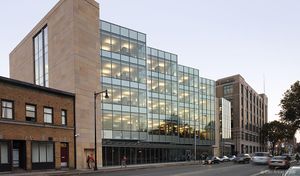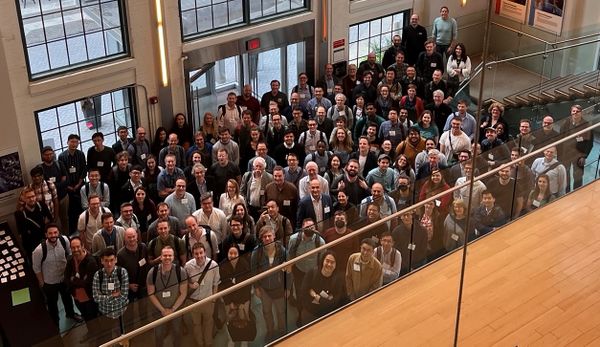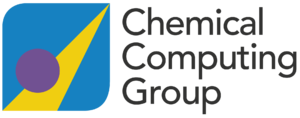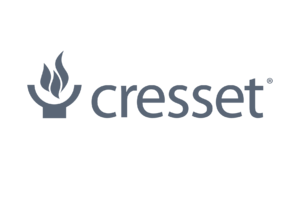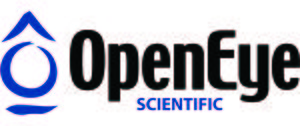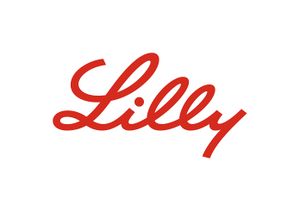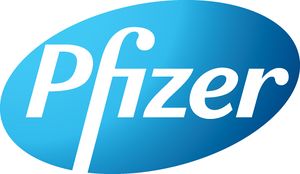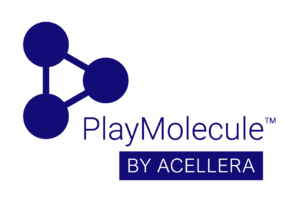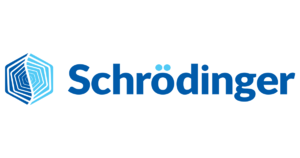2023 Workshop on Free Energy Methods in Drug Design
Introduction
This workshop has been rolled over from the schedule 2020 event, and will focus on the current state of free energy techniques. Registration for the 2020 conference will be held. Refunds are available and more places may become available.
Our goal in this workshop is to bring together experts from pharma and supporting industries, as well as academia, in an intense and focused workshop to identify challenges and help chart the path forward. We are particularly interested in hearing about use cases, pitfalls and their solutions. We also firmly believe we can learn a great deal from failure, so we hope participants will go beyond just highlighting success stories to provide more detailed insight into successes and failures.
Dates and Location
The conference is scheduled for 10-12 May 2023, at the Novartis Institutes for BioMedical Research, Cambridge, MA: 250 Massachusetts Ave, Cambridge MA 02139. Signage for the conference will be visible from there.
Accommodation
Discount rates may be available for some hotels in the area. Novartis suggests that attendants individually book online or call and used the booking codes below:
Hyatt Regency Cambridge
Booking code – 19296
Cambridge, MA Hotels Near MIT | Hyatt Regency Boston/Cambridge
When making reservations from the Special Rates dropdown choose Corporate or Group Code then a new box will open to add the code above
Marriott Hotels
Any Marriott will use this code – NVT
When making reservations from the Special Rates dropdown choose Corp/Promo Code then add the code above
Novartis is close to the Central stop on the red line, as well as the number 1 bus route, and there may be more affordable accommodation options using these transport links.
Registration
Registration will cost $100 for admission to the 2.5 day conference, which will cover both snacks and lunch, as well as refreshments in the evening sessions.
- Registration is full! If you are no longer planning to attend, please let us know and we can refund your fee via paypal.
Conference Photograph
Poster session
Abstract submission for posters is open until 15th March 2023. Please submit an abstract using this form.
Workshop Themes
As this is the 10(+3)th birthday of the first 2010 free energy workshop, we will be holding a session celebrating the last 10 years - how far have we come, and where do we still need to go?
Other sessions will be held to discuss the current software that is currently available to the field - both commercial packages, and open-source academic efforts.
Discussions about the novel methods and algorithms that are in development and where these can be best applied will be held.
Results of free energy methods will be presented - both the successes and the limitations - with the idea of addressing what the community would like to see at the following meeting.
Finally, half a day of talks will be dedicated to the intersection of free energy methods with machine learning.
Sponsors, Social Media and Streaming
Sponsors
We would like to thank the following sponsors:
We are currently looking for sponsorship for the event. If your organisation would be interested, please contact any of the organisers.
Particular thanks to the Boston Area Group for Informatics and Modeling (BAGIM)for helping with the financial organisation of this meeting.
Social Media
Twitter hashtags: #alchemy2023
Slack: https://alchemistry.slack.com
Join the slack using this link
Recording
The organizing committee has arranged for some talks to be recorded, and will upload them after the conference. However, please refrain from doing so yourself since the recording of any talk is at the discretion of the speaker, their employer and collaborators.
Poster Session
Some posters (indicated by * next to presenter name) presented at the conference are available to view here
- Ernest Awoonor-Williams Novartis Institutes for BioMedical Research: Molecular Insights into the Binding Interaction of the First Class of Potent Small Molecules Disrupting the YAP-TEAD Protein-Protein Interaction
- Ryan L Hayes* University of California Irvine: Towards Computational Protein Design of Therapeutics with Free Energy Methods
- Alex Dickson* Michigan State University: Flexible topology: A tool for binding free energies, pose prediction and ligand design
- Jaehoon Yang The Ohio State University: Optimized, yet linear methods for equilibrium free energy estimation from umbrella sampling data or non-equilibrium work distributions
- Xinqiang Ding Massachusetts Institute of Technology: DeepBAR: a fast and exact method for binding free energy computation
- Sara Tkaczyk University of Vienna: Using neural net potentials for efficient free energy difference calculations
- Benjamin Ries OMSF and Boehringer Ingelheim: Kartograf: An accurate graph-based atom mapper for Hybrid Topology Relative Free Energy Calculations
- Finlay Clark* The University of Edinburgh: Comparing Receptor-Ligand Restraint Schemes for Alchemical Absolute Binding Free Energy Calculations
- William Poole University of Southampton: Fragment Binding Sites, Poses and Affinities with Grand Canonical Nonequilibrium Candidate Monte Carlo
- Sepehr Dehghani-Ghahnaviyeh Novartis Institutes for BioMedical Research: Computational recipes to dissect the binding affinity of BYL719 analogs targeting Phosphatidylinositol-3-kinase Alpha
- Oliver Melling University of Southampton: Can Simulations Reproduce Experimental Water Networks?
- Audrius Kalpokas* University of Edinburgh: Modelling of MDM2 Mutations Using Free Energy Calculations
- Holly Freedman Department of Medicinal Chemistry, University of Utah: Machine Learning of RISM-based Solvation Free Energy Differences
- Ivy Zhang* Memorial Sloan Kettering Cancer Center: Identifying and overcoming the sampling challenges in relative binding free energy calculations of a model protein:protein complex
- Vytautas Gapsys* Janssen Research & Development: Combining Alchemical Free Energies and Active Learning to Explore Chemical Space
- Hannah Baumann* UC Irvine: Breaking free from ligand similarity restrictions in binding free energy calculations
- Junmei Wang* Department of Pharmaceutical Sciences, School of Pharmacy, University of Pittsburgh: A High-Quality Charge Model for the Third Generation of General AMBER Force Field Development
- Anna Herz The University of Edinburgh: Using BioSimSpace to create an interoperable Relative Binding Free Energy Pipeline
- Johannes Karwounopoulos* University Vienna, Faculty of Chemistry, Institute of Computational Biological Chemistry, Austrig: transformato - a molecular dynamics engine-independent tool for calculating free energies
- Joshua Horton* Newcastle University: Open Force Field BespokeFit: Automating Bespoke Torsion Parameterization At Scale
- Wei-Tse Hsu* University of Colorado Boulder: Alchemical metadynamics: Enhancing configurational sampling in alchemical free energy calculations
- Wei Chen* Schrodinger, Inc: Enhancing hit discovery by absolute binding free energy calculation
- Anna Cavalleri* University of Southampton: An investigation into the variability of relative binding free energies for p38 MAPK crystal structures using Non-Equilibrium Switching methods
- Antonia Mey* University of Edinburgh: Towards reliable alchemical free energy calculations for metalloproteins
- Andrea Bortolato SandboxAQ: Multi-Fidelity AQ-FEP: A Fast & Efficient Absolute Free Energy Perturbation Solution for Virtual Screening
- Dominic Rufa Memorial Sloan Kettering Cancer Center: Assessing protein:ligand binding affinity predictions with machine-learned quantum chemistry
- Dmitry Lupyan* Schrodinger: Small-Molecule Residence Times calculations through Efficient Enhanced Sampling methods
- Dilek Coskun Schrödinger Inc., 1540 Broadway, New York, NY 10036, USA: Enabling Alphafold2 predicted G-protein coupled receptors for structure-based drug design
- Aaron Joseph Nessler* University of Iowa: An Alchemical Crystal Structure Prediction Pipeline
- Luis F. Cervantes Department of Medicinal Chemistry, College of Pharmacy, University of Michigan: Exploration of Activity Cliffs Using Multisite λ-Dynamics (MSλD) to Enhance In Silico Lead Optimization
- Willem Jespers Leiden University: Generating intermediates for FEP using molecular generators
- Agnes Huang OpenEye,Cadence Molecular Sciences: Recent Developments and Improvements to the OE Affinity Package on the Orion Platform
- Irfan Alibay* Open Free Energy, Open Molecular Software Foundation: Open Free Energy: An Open Source Ecosystem for Alchemistry
- Sofia Bariami* Cresset : Free energy calculations and bioisosteric replacement studies for the identification of potential inhibitors for SARS-Cov-2 cystein proteases
- Simon P Webb* VeraChem LLC: Fast, accurate prediction of protein-ligand binding free energies by mining minima: the VM2 software package
- David L. Dotson* Datryllic LLC: alchemiscale: a high-throughput alchemical free energy execution system for use with HPC, cloud, and Folding@Home
- Léa El Khoury Qubit Pharmaceuticals, Incubateur Paris Biotech Santé, 24 Rue du Faubourg Saint Jacques, 75014 Paris: Application of absolute binding free energy calculations to predict the binding modes and affinities of protein–protein inhibitors
- Asaf Farhi Yale University: Automating binding and solvation relative free energy calculations
- Xikun Liu UC Santa Barbara: Modulating Aβ and TDP-43 peptide oligomerization with computationally designed small molecules
- Zhiyi Wu* Exscientia: Automated, high-throughput binding free energy calculations using a multi-engine platform in the context of AI-driven drug discovery
- Callum Dickson* Novartis: Active learning free energy cycles for potency prediction on project focused libraries
- Rohith Mohan Dassault Systemes BIOVIA: Discovery Studio Simulation: Enhancements to Multi-site Lambda Dynamics
- Aniket Magarkar Boehringer Ingelheim Pharma GmbH: MD-SIMBA: An automated tool to interpret the interactions of biomolecules in motion for drug design
- Tobias Hüfner Max-Planck Institute of Biophysics: Automated and Systematic Derivation of Parameter Type Definitions for Molecular Mechanics Force Fields
Schedule
Tuesday 9th May (6PM - 8PM) --- informal evening social hosted by Psivant Therapeutics | 70 Fargo St, Boston, MA 02210
| Time | Speaker | Title |
|---|---|---|
| 8.45 - 9.00 | arrival | |
| 9.00 - 9.05 | Jose Duca | Welcome to NIBR |
| 9.05 - 9.10 | Kira + Hannah | Opening remarks |
| Session Chair | David Huggins | |
| 9.10 - 9.35 | Michael Shirts | Free energies: What we’ve learned about how to estimate them |
| 9.35 - 10.00 | Sereina Riniker | 10+ Years with (RE-)EDS: Efficient Free-Energy Calculations with a Multistate Method |
| 10.00 - 10.25 | Huafeng Xu | Adaptive optimization of binding free energy networks and integration of experimental data |
| 10.25 - 10.40 | BREAK | BREAK |
| Session Chair | Rafal Wiewiora | |
| 10.40 - 11.05 | Bill Jorgensen | Free Energy Calculations from Butane to COVID-19 |
| 11.05 - 11.30 | Jonathan Essex | Enhancing protein and ligand sampling in molecular simulations by fully adaptive simulated tempering |
| 11.30 - 12.15 | Derek Lowe (keynote) | FEP and Drug Discovery: Where We've Been and Where We'd Like to Go |
| 12.15 - 1.30 | LUNCH | LUNCH |
| 1.30 - 1.35 | Zoe Cournia | Welcome back |
| Session Chair | Matthew Hurley | |
| 1.35 - 2.00 | Jonah Vilseck | Rapid and Accurate Free Energies of Binding from λ-Dynamics with Bias Updated Gibbs Sampling |
| 2.00 - 2.25 | David Mobley | Separated Topologies: A flexible approach for relative binding free energy calculations |
| 2.25 - 2.50 | Christopher Bayly | Making Binding Free Energies Practical in a Massively Parallel Universe |
| 2.50 - 3.05 | BREAK | BREAK |
| Session Chair | Ernest Awoonor-Williams | |
| 3.05 - 3.30 | Ana Silveira | On the use of high-throughput binding free energy simulations in design cycles for drug discovery |
| 3.30 - 3.55 | Katharina Meier | Free Energy Calculations in Pharmaceutical and Crop Science R&D at Bayer |
| 3.55 - 5.40 | Poster Session | Poster Session |
| Time | Speaker | Title |
|---|---|---|
| 9.00 - 9.10 | Sereina + Camilo | Welcome + Opening remarks |
| Session Chair | Yutong Zhao | |
| 9.10 - 9.35 | Chia-en Chang | Ligand Binding Kinetics: Pathways, Transient States and Unbinding Free Energy Profile |
| 9.35 - 10.00 | Alex Dickson | Learning and sampling complex ligand binding pathways with weighted ensemble techniques |
| 10.00 - 10.25 | Josh Fass | A local resampling trick for focused molecular dynamics |
| 10.25 - 10.40 | BREAK | BREAK |
| Session Chair | Phillip Hudson | |
| 10.40 - 11.05 | Robert Abel | Accelerating drug discovery with ultra-large scale collaborative deployment of predictive modeling |
| 11.05 - 11.30 | Marco De Vivo | Pushing the boundaries: FEP for protein-protein and protein-nucleic acids interaction |
| 11.30 - 11.55 | Xin (Cindy) Yan | Promises and Limitations: Free Energy Methods in Drug Discovery Projects |
| 11.55 - 1.15 | LUNCH | LUNCH |
| Session Chair | Antonia Mey | |
| 1.15 - 1.20 | Zoe Cournia | Welcome back + Poster prize announcement |
| 1.20 - 1.45 | Julien Michel | Engineering FEP science in the open |
| 1.45 - 2.10 | Jay Ponder | Accuracy of the AMOEBA Force Field in Binding Free Energy Simulations |
| 2.10 - 2.35 | Lance M. Westerhoff | Fast, absolute binding free energy calculations using MovableType: the impact of different global sampling regimes on predictive performance |
| 2.35 - 2.50 | BREAK | BREAK |
| Session Chair | Zoe Cournia | |
| 2.50 - 3.15 | Emilio Galliachio | AToM-OpenMM: An Open-Source Software Package for Relative Binding Free Energy Estimation in Drug Discovery |
| 3.15 - 3.40 | Francesca Deflorian | Expanding the Realm of FEP and GPCR Drug Design |
| 3.40 - 4.05 | John Chodera | Teaching free energy calculations to learn |
| 4.05 - 4.25 | BREAK | BREAK |
| Session Chair | Ryan Hayes | |
| 4.25 - 4.50 | Gianni De Fabritiis | Relative binding affinity calculations towards accuracy and scalability |
| 4.50 - 5.15 | Lingle Wang | Beyond Small Molecule Binding: Free Energy Calculations for Antibody Affinity, pH Sensing, Small Molecule Solubility and More |
| 5.15 - 5.40 | David Hahn | Impacting drug discovery with open source free energy calculation tools. |
Thursday 11th May (6.30PM) --- informal evening social sponsored by Schrodinger - 730 Tavern
| Time | Speaker | Title |
|---|---|---|
| 9.00 - 9.10 | Kira + Jonah | Welcome + Opening remarks |
| Session Chair | Jonah Vilseck | |
| 9.10 - 9.35 | Darrin York | Enhancing Precision and Accuracy in Alchemical Free Energy Simulations |
| 9.35 - 10.00 | David Pearlman | Free Energy Perturbation calculations incorporating a quantum representation of the ligand binding site |
| 10.00 - 10.25 | Mark Mackey | Improving efficiency of free energy calculations with adaptive lambda schedules |
| 10.25 - 10.40 | BREAK | BREAK |
| Session Chair | Sepehr Dehghanighahnaviyeh | |
| 10.40 - 11.05 | Hugo Gutierrez de Teran | QFEP: combining ligand SAR and in silico mutagenesis for ligand design |
| 11.05 - 11.30 | Andrey Frolov | Dealing with high flexibility of crosslinked peptides in FEP calculation |
| 11.30 - 11.55 | - | Round table discussion |
| 11.55 - 1.15 | LUNCH | LUNCH |
| Session Chair | Alisha Caliman | |
| 1.15 - 1.20 | Zoe Cournia | Welcome back |
| 1.20 - 1.45 | Michael Schnieders | An Alchemical Pipeline for Polymorph Discovery and Optimization |
| 1.45 - 2.10 | David Minh | Binding pose prediction using absolute binding free energy calculations |
| 2.10 - 2.35 | Lucy Colwell | Machine learning to predict protein function from sequence with therapeutic applications |
| 2.35 - 2.50 | Kira + Hannah | Closing remarks |
Conference Code of Conduct
All attendees, speakers, sponsors and volunteers at our conference are required to agree with the following code of conduct. Organisers will enforce this code throughout the event. We expect cooperation from all participants to help ensure a safe environment for everybody.
Need Help? Please contact the organising committee either in person or via email. Members of the organising committee are listed above.
The Quick Version
Our conference is dedicated to providing a harassment-free conference experience for everyone, regardless of gender, gender identity and expression, age, sexual orientation, disability, physical appearance, body size, race, ethnicity, religion (or lack thereof), or technology choices. We do not tolerate harassment of conference participants in any form. Sexual language and imagery is not appropriate for any conference venue, including talks, workshops, parties, Twitter and other online media. Conference participants violating these rules may be sanctioned or expelled from the conference without a refund at the discretion of the conference organisers.
The Less Quick Version
Harassment includes offensive verbal comments related to gender, gender identity and expression, age, sexual orientation, disability, physical appearance, body size, race, ethnicity, religion, technology choices, sexual images in public spaces, deliberate intimidation, stalking, following, harassing photography or recording, sustained disruption of talks or other events, inappropriate physical contact, and unwelcome sexual attention.
Participants asked to stop any harassing behavior are expected to comply immediately.
Sponsors are also subject to the anti-harassment policy. In particular, sponsors should not use sexualised images, activities, or other material. Booth staff (including volunteers) should not use sexualised clothing/uniforms/costumes, or otherwise create a sexualised environment.
If a participant engages in harassing behavior, the conference organisers may take any action they deem appropriate, including warning the offender or expulsion from the conference with no refund.
If you are being harassed, notice that someone else is being harassed, or have any other concerns, please contact a member of the organising committee immediately.
A member of the organising committee will be happy to help participants contact local law enforcement, provide escorts, or otherwise assist those experiencing harassment to feel safe for the duration of the conference. We value your attendance.
We expect participants to follow these rules at conference and workshop venues and conference-related social events.
The code of conduct text was taken from https://github.com/confcodeofconduct/confcodeofconduct.com in a slightly adapted form.
Attendees
- Ivy Zhang
- Ana Silveira
- Dominic Rufa
- John Chodera
- Ross Walker
- Julien Michel
- Hannah Bruce Macdonald
- Kira Armacost
- Zoe Cournia
- Sereina Riniker
- Jonah Vilseck
- Lucy Colwell
- Alex Dickson
- Jonathan Essex
- William Jorgensen
- David Minh
- Woody Sherman
- Jenke Scheen
- Mehtap Isik
- Vishnu Sresht
- Xinjun Hou
- Lance Westerhoff
- David Huggins
- Nathaniel Stanley
- Yutong Zhao
- David Dotson
- Antonia Mey
- Lingle Wang
- Dmitry Lupyan
- Torsten Herbertz
- Chia-en Chang
- David Hahn
- Joy Yang
- Michael Schnieders
- Sebastian Schneider
- Cindy Yan
- Yilin Meng
- Darrin York
- Taisung Lee
- Gianni De Fabritiis
- Cen Gao
- Haoyu Yu
- David Mobley
- Anthony Arvanites
- Byron Delabarre
- Carlos Faerman
- Frank Pickard
- Kevin Cusack
- Robert Abel
- Mark Mackey
- Scot Mente
- Katharina Meier
- Charles Lin
- Kristen Marino
- Brian Radak
- Hannah Baumann
- Simon Webb
- Michael Potter
- Yuan Hu
- Ingo Mugge
- Sunhwan Jo
- Demetri Moustakas
- Kaushik Lakkaraju
- Rubben Torella
- Barbara Zarzycka
- Michael Yonkunas
- Naoki Ogawa
- Bryce Allen
- Asaf Farhi
- Francesca Deflorian
- Xinqiang Ding
- zhiyi wu
- Ido Ben-Shalom
- Agustina Rodriguez-Granillo
- Steven Albanese
- Christopher Bayly
- Gaetano Calabro
- Jay Ponder
- Roseane R. Silva
- Luis F. Cervantes
- Anna Cavalleri
- Brajesh Rai
- Alireza Shabani
- Shu-Ching Ou
- Jonathan Mason
- Léa El Khoury
- Willem Jespers
- Hugo Gutierrez de Teran
- Niels Hansen
- Adam Antoszewski
- Aniket Magarkar
- Nick Wang
- Simone Sciabola
- Sung-Hun Bae
- Wei Chen
- Magdalena Korczynska
- Geoffrey Wood
- Dilek Coskun
- Levi Pierce
- Irfan Alibay
- Chuan Tian
- Chaya Stern
- Gregory Ross
- Sofia Bariami
- Melissa Boby
- Guowei Qi
- Agnes Huang
- Andrey Frolov
- Junmei Wang
- Taylor Quinn
- Alisha Caliman
- Hao Wu
- Borna Zandkarimi
- Vytas Gapsys
- Bill Swope
- Francis Jing
- Virginia Burger
- Ryan Hayes
- Mrinal Shekhar
- Wei-Tse Hsu
- Josh Fass
- Joe Kaus
- Ahmet Mentes
- Yujie Wu
- Andrea Bortolato
- Joseph Bluck
- Gianpaolo Gobbo
- Mingjun Yang
- Will Poole
- Ollie Melling
- Holly Freedman
- Anna Herz
- Audrius Kalpokas
- Jaehoon Yang
- Xikun Liu
- David Slochower
- Finlay Clark
- Ben Ries
- Alberto Gobbi
- Matt Wittmann
- Forrest York
- Marcus Wieder
- Johannes Karwounopoulos
- Sara Tkaczyk
- BinQing Wei
- Marco De Vivo
- Usha Viswanathan
- Sukrit Singh
- Michael Shirts
- Gianni De Fabritiis
- Huafeng Xu
- David Pearlman
- Aaron J. Nessler
- Maria Musgaard
- Meir Glick
- Gard Nelson
- Haoyu Yu
- Daniel Cole
- Josh Horton
- Alex Payne
- Iván Pulido
- Tobias Huefner
- Rob Scoffin
- Marek Orzechowski
- Philip Hudson
- Mary Pitman
- Matthew Hurley
- Daniel Severance
- Nikolai Schapin
- Rohith Mohan
- Rafal Wiewiora
- Hannes Stärk
- Michelle Lamb
- Hugo MacDermott
